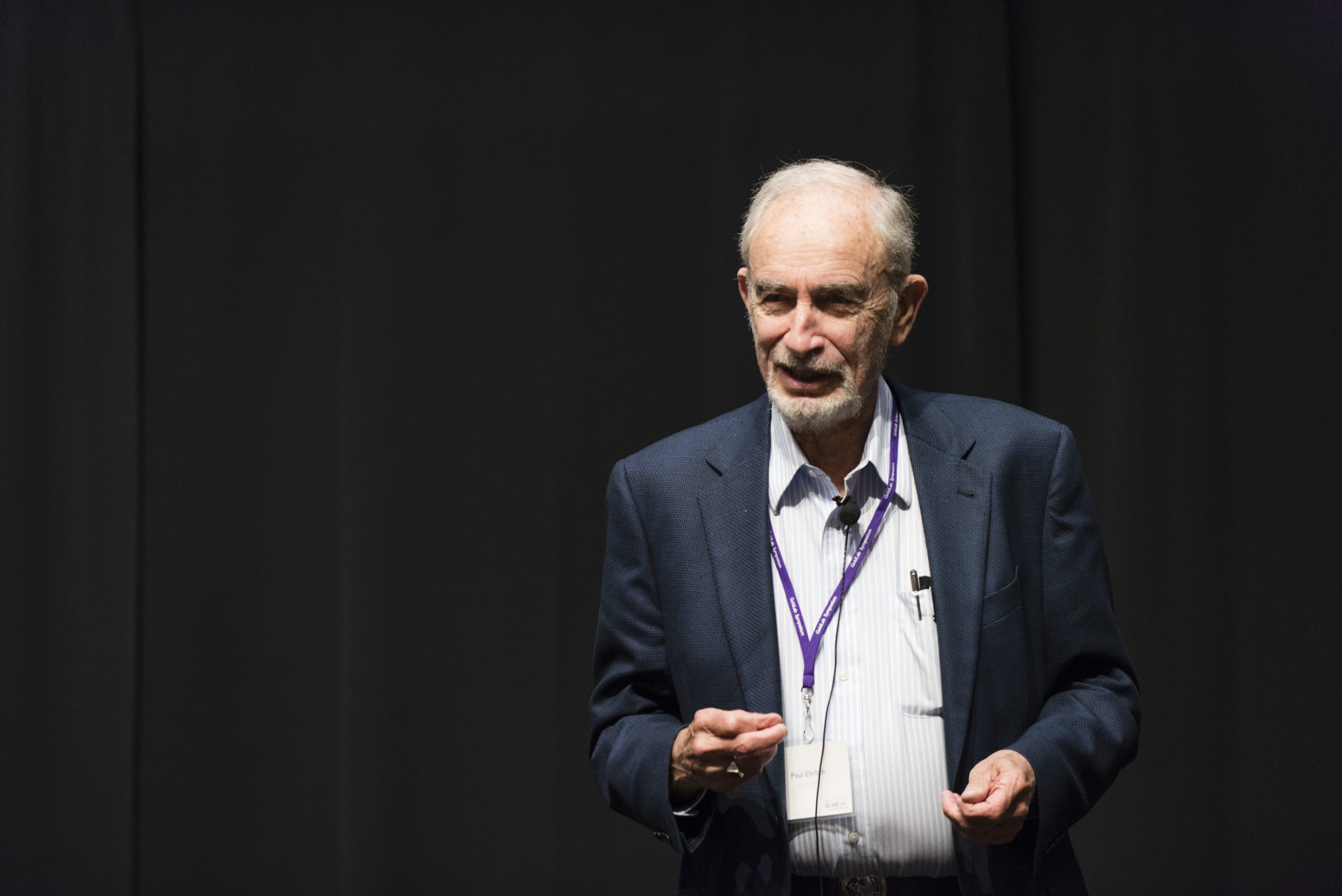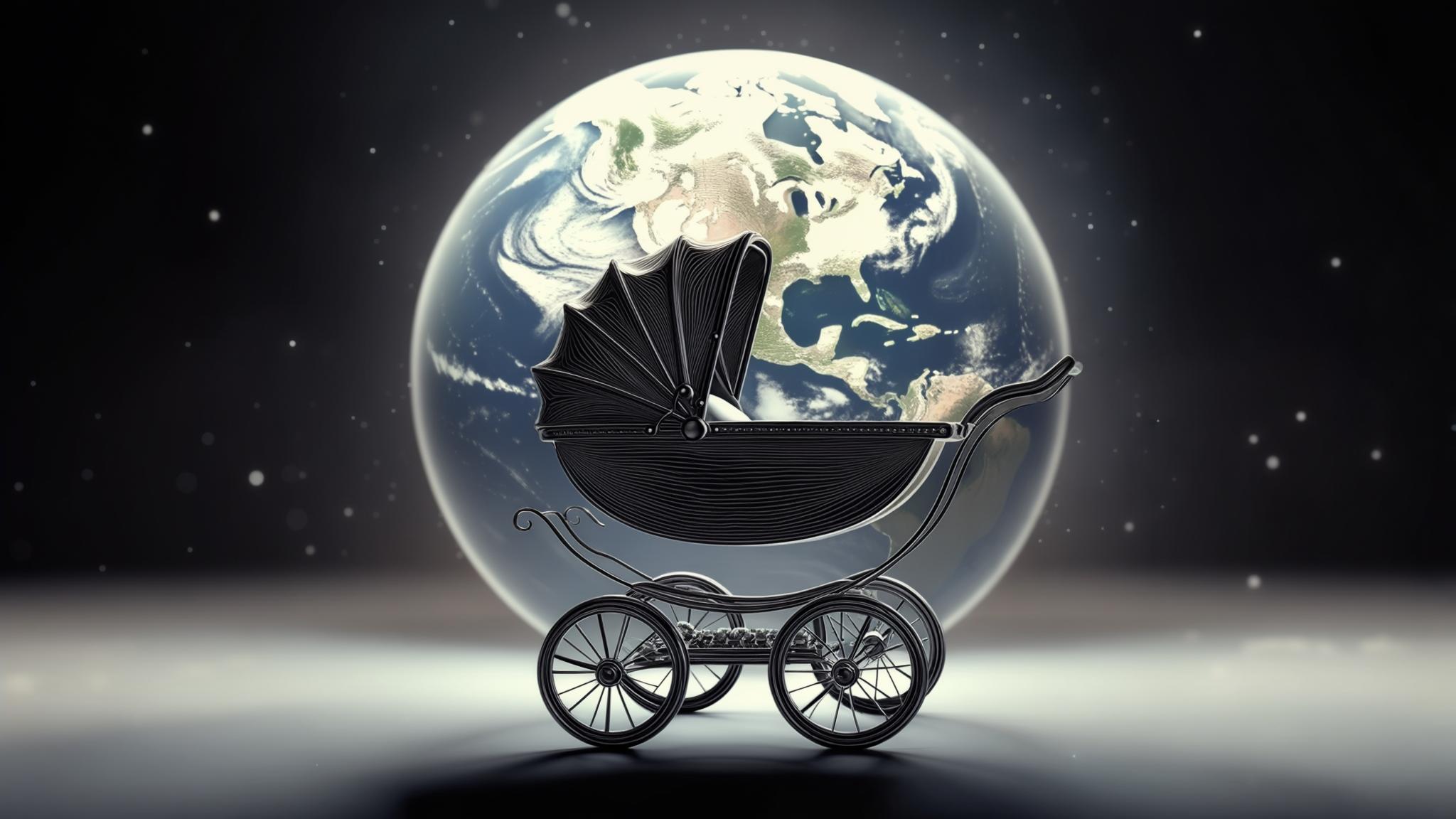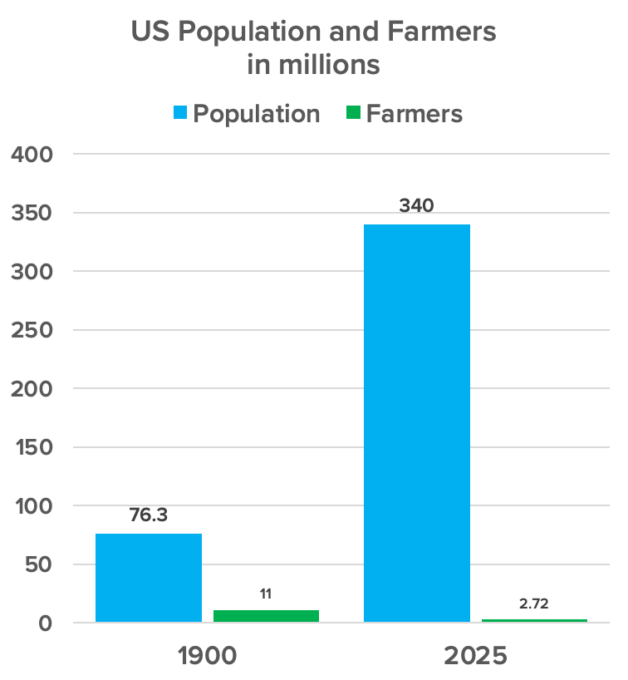This interview originally appeared in James Pethokoukis’s Faster, Please! newsletter.
Yesterday I offered my thoughts on Paul Ehrlich’s recent 60 Minutes appearance. Today, I offer you Marian Tupy’s. As the editor of HumanProgress and coauthor of Superabundance: The Story of Population Growth, Innovation, and Human Flourishing on an Infinitely Bountiful Planet — check out our podcast conversation about the book here — he’s one of the best people to offer an alternative to Ehrlich’s doom and gloom.
Tupy offered some initial thoughts on Monday in HP, but I wanted to know more. Here are 9 Quick Questions:
1/ I thought Paul Ehrlich’s overpopulation concerns were discredited, yet he recently made a 60 Minutes appearance. How mainstream are his ideas today?
In fact, Ehrlich is pushing two sets of overpopulation concerns. First, he claims that we are running out of resources that we use to create economic value, such as metals, minerals, fuels, etc. Second, he claims that we are running out of nature. As far as I can tell, that includes concerns over biodiversity, ecological sinks, clean air, as well as abundance of cropland, grazing land, fishing grounds, forests, etc. Basically, he believes that we are raping and poisoning the planet. The first set of concerns is no longer widely held among mainstream economists (if it ever was) but remains popular among non-economists, especially biologists, and among the larger public. The second is taken more seriously by all kinds of scholars as well as the public.
2/ You note that CBS chose not to feature Paul Romer, Larry Summers, or any number of scholars who could counter Ehrlich’s overpopulation claims. Why do you think the media is so committed to that narrative?
Alex Epstein, whose book Fossil Future I recommend, notes the persistence of so-called “designated experts” that the media goes to for opinion on certain subjects regardless of whether those experts were correct in the past. So, Ehrlich is the “resources” expert, John Brennan is the “intelligence” expert, Bill Kristol is the “foreign policy” expert, and so on. (The last two are my examples, not Epstein’s.) It helps if these “designated experts” say things that the various media outfits and their audiences already believe in. So, I think that media bias and market segmentation play a role. But that’s not all. Environmental catastrophe is a great subject. When you sell the apocalypse, the audience feels like you are deep and that you care. When you discuss rational optimism or “solutionism,” it feels like you are being glib and uncaring.
3/ 60 Minutes does note that The Population Bomb’s predictions were wrong: “The alarm Ehrlich sounded in ’68 warned that overpopulation would trigger widespread famine. He was wrong about that. The green revolution fed the world.” What would you add to CBS’s disclaimer?
The Green Revolution (i.e., the transfer of agricultural technology and best practices from rich nations to poor ones in the post-WWII era) was important, but there were many other technological and scientific breakthroughs or innovations that allow us to produce enough food to feed 8 billion people (and, potentially, many more). Today, we can grow rice in saltwater and hydroponic lettuce underground. So, productivity gain is ongoing. It did not stop with the Green Revolution. Let’s not forget political and economic changes. The collapse of communism, economic liberalization, and globalization helped. India now exports food and so does Ukraine (or at least it did, before the Russian invasion). Simply put, the world has more people who are freer and more connected than they were in the 1960s. They are cooperating to solve our problems.
4/ The argument against overpopulation centers on technology and human ingenuity, but isn’t it possible we’ll run out of ideas and Ehrlich will be proven right in the long run?
In our book Superabundance, we claim that abundance depends on people and freedom. When the world’s population starts falling (around 2060 or so), we will have fewer brains to come up with new ideas. We could compensate for that decline with advances in AI and increasing human freedom (i.e., there are huge chunks of the world where people are not allowed to flourish and participate fully in the global economy). If freedom shrinks (as has been the case in recent years), AI fails to materialize, and human population declines, we could have a less prosperous future.
5/ You write, “Economic development, in other words, is the key to environmental protection.” What do you mean by that?
Clean environment is a “luxury good.” Poor people care less about the environment than rich people—generally speaking. The former have more pressing problems than the latter—as shown by global environmental quality rankings, such as the Yale Environmental Performance Index. When poor countries develop (like Chile and South Korea have done, to give just two examples), they will be able to have more resources to protect the wildlife; they will be able to afford to put in place and enforce more stringent environmental regulations; they will urbanize, and thus get off the land; their energy sources will be cleaner (e.g., gas instead of wood); and their agriculture will be more productive, thus yielding more food from fewer acres of land. Nature will rebound, as it always does.
6/ You advocate “a balance between environmental concerns and human flourishing—understanding that humans are not only destroyers, but also creators and protectors of the planet and that which thrives on it.” What does that balance look like in practice?
There is no universal standard. As I noted in the previous answer, much depends on your level of economic development. If you are starving, like Zimbabweans did when I visited that country in 2008, wild animals will be seen as food rather than a tourist attraction. In hard times, human survival trumps other considerations. In Switzerland, in contrast, people prioritize environmental quality and are willing to put up with all sorts of daily inconveniences to achieve that goal. I will add this: In the last few decades, a certain segment of the environmental movement in the West has seemingly lost sight of human well-being and seems to prioritize relatively unimportant environmental concerns over human flourishing. We need the pendulum to swing back toward the center.
7/ You write, “The reason the planet matters is that we are here to perceive it and to enjoy it with our senses. (Animals don’t care about biodiversity per se. What they do care about is finding an organism to kill and eat or mate with.)” Is the protection of the natural environment and endangered species not a good in itself? Must conservation efforts be subordinated to human desires?
I am a humanist and thus guilty of anthropocentrism. We all have our own hierarchy of values. That’s mine. But I also think that mine is a logically defensible position. Without humans, what exactly is the point of the planet? Who cares whether it exists or not? Only we care. I thought that was a point worth making, given that, increasingly, progressive media outlets, like the New York Times and The Atlantic, are giving space to misanthropes who argue in favor of zero births, end of humanity, etc. Finally, I do think that a humanist position is compatible with a healthy planet. I love nature. It makes me happy. And, from what I learned during the COVID-19 lockdown, the same is true of most people. Healthy planet and human flourishing are inseparable.
8/ On 60 Minutes, Ehrlich says, “Humanity is not sustainable. To maintain our lifestyle (yours and mine, basically) for the entire planet, you’d need five more Earths.” Where does such a figure come from, and why do you think it’s flawed?
It comes from an NGO called the Global Footprint Network, and it is fundamentally mistaken. As we argue in Superabundance, people need to stop thinking in terms of atoms and start thinking in terms of knowledge. The number of atoms on the planet is finite, but the value we can get from those atoms is potentially infinite. When people first started to convert sand into glass, they turned glass into beads and jars. Today, we use glass in microchips and fiber-optic cables. Instead of radios, TVs, cameras, maps, and clunky rotary phones, we have iPhones. Instead of cutting down forests to print Encyclopedia Britannica, we have Wikipedia. We dematerialize, and we miniaturize. So new knowledge can allow us to become unimaginably wealthy on one planet.
9/ The World Wildlife Fund finds that “monitored populations of vertebrates … have seen a devastating 69 percent drop on average since 1970.” Is Ehrlich wrong to suggest that “humanity is very busily sitting on a limb that we’re sawing off” by causing biodiversity to decline?
I cannot do better than Ronald Bailey, who understands that subject area much better than I do. But, in a nutshell, the situation is much less scary, and human impact on biodiversity seems to be greatly exaggerated by the usual suspects. Let me simply say that never before in human history have we had as much wealth, as skilled of a workforce capable of solving problems, and such determination to ensure that the biosphere is protected and extinction rates minimized. Heck, we are even seriously discussing bringing species back from extinction. One of the keys to continued human and ecological progress is to get people off the land and into the cities. Nature will take care of the rest.







